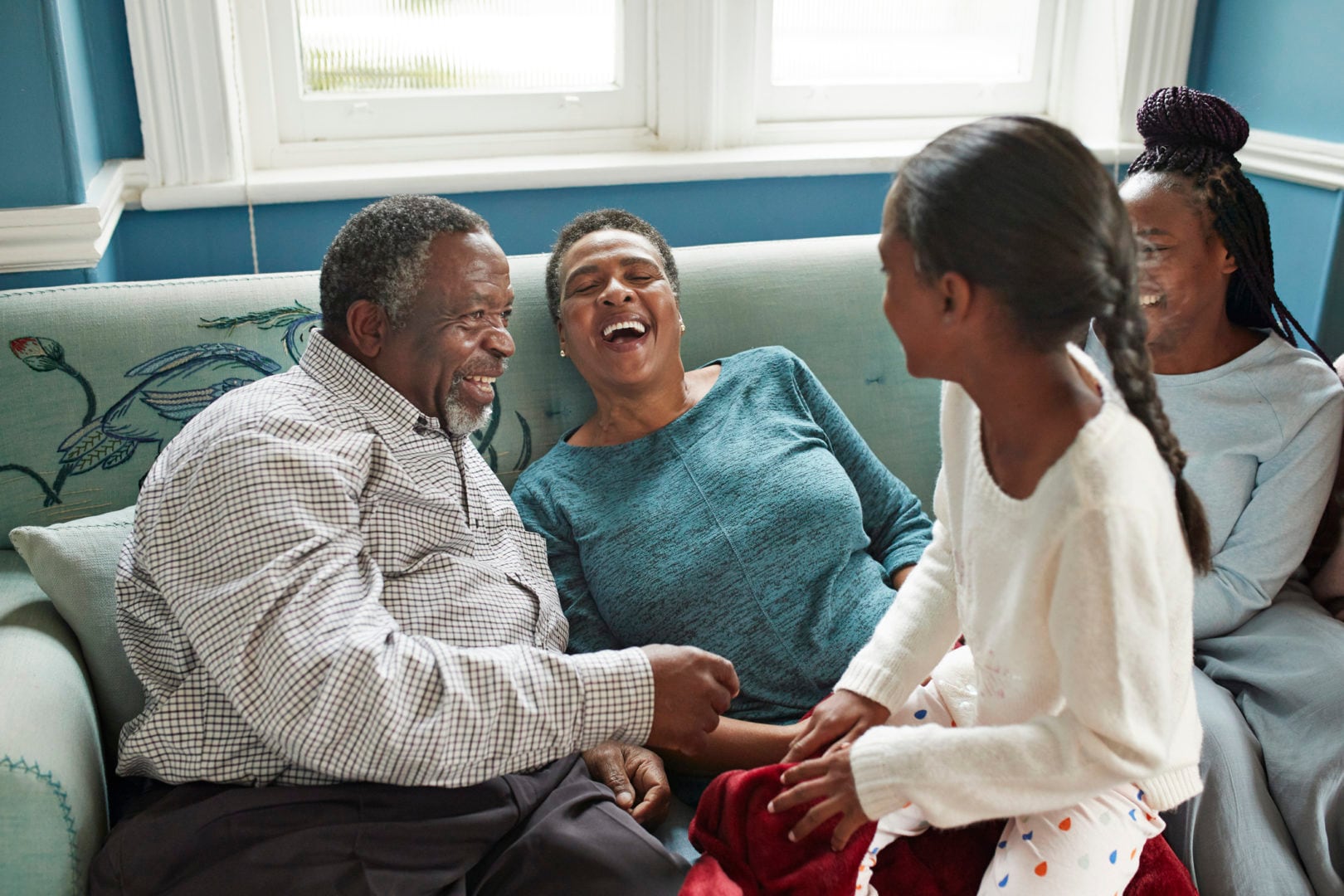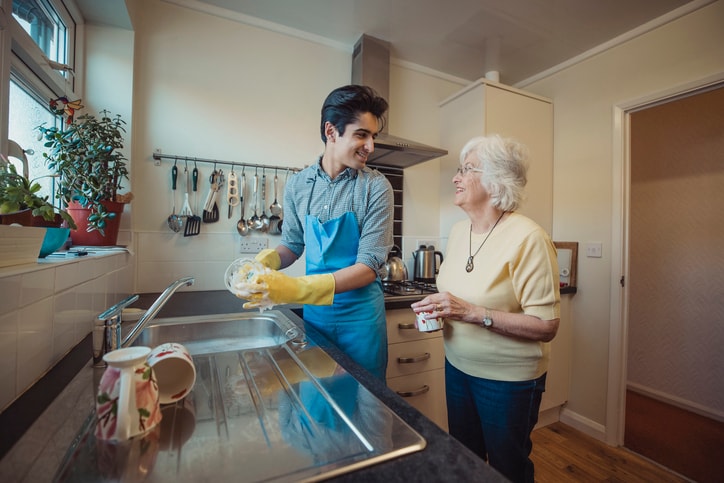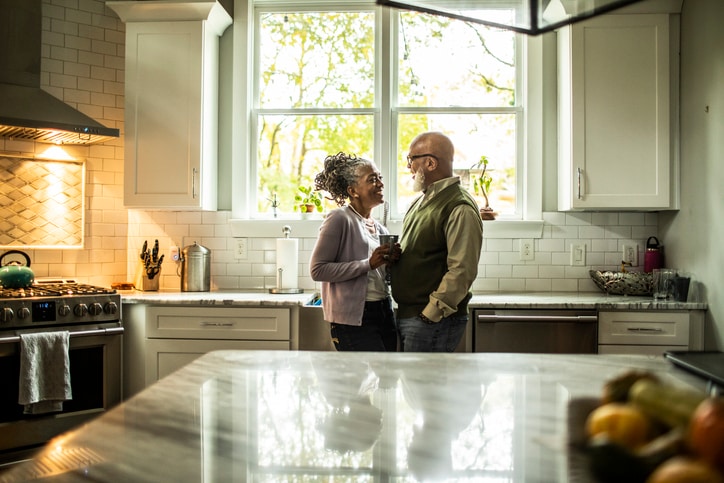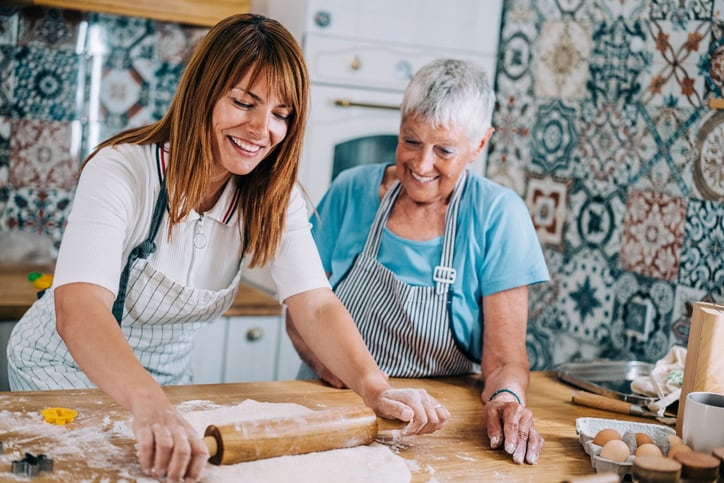One of the benefits of aging is acquiring a wealth of wisdom and experience. But all too often older loved ones’ insights and stories go unshared as family or professional caregivers, as well as grandchildren, are unsure how to bridge the generation gap.
“When in the presence of an aging loved one, it might seem daunting to connect with them or at least find something in common,” says Amy Fuchs, licensed clinical social worker and founder of The Elder Expert, in Saddle River, New Jersey. “One way to counteract that is to ask your aging loved one open-ended questions about their life. In many ways, you might find their openness enlightening and insightful. Perhaps you’ll even recognize that you have more in common than you realize.”
Asking questions that encourage older adults to talk about their lives can help forge a new connection or strengthen an existing bond. At the same time, it may help them feel valued or better understood.
Jay Newton-Small, founder of MemoryWell, a Washington D.C.-based company that writes seniors’ life stories, recalls that moving her dad into long-term care was one of the hardest days of her life. In an effort to help caregivers really get to know her father, Newton-Small wrote down his story and shared it. “His caregivers loved it,” she says, “because now they could understand my father so much better and soothe him in tense moments by recalling for him family names or poignant details about his life.”
If you’re ready to learn more about the older adult in your life, the following are 20 questions to ask your parents, grandparents and seniors to spark an engaging conversation that’s beneficial for all.
Tell me about your childhood
1. Where did you grow up?
“This helps give grandchildren and caregivers context as to where the senior came from,” says Fuchs. “It can also be a beginning to a longer conversation as to how the senior ended up in their present location.”
2. Please tell me about your parents/siblings?
This gives the senior an opportunity to reminisce about their childhood, perhaps even offer up some happy memories from their youth, says Fuchs.
3. What is your favorite childhood memory?
“This helps with bonding and building a connection,” explains Dr. Leela R. Magavi, psychiatrist and regional medical director for California-based Mindpath Health.
4. Did you have any great pets?
“We often find that people have rich memories associated with favorite pets — vacations, hiking or just at home,” says Newton-Small.
5. What was your favorite subject in school?
This offers a window into their interests.
6. What summer jobs or household chores did you have as a child?
“That’s a great way to get to the nostalgia of childhood, but not in an overly sentimental or emotional way,” says Newton-Small. “It also gets to family values and work ethic.”
7. Did you play sports? What was your favorite sport both to play and to watch?
Again, this provides a way to find out about other interests and possibly showcase hidden abilities and talents.
8. What was your favorite family vacation? How did you spend your summers?
This is another opportunity to discuss a happier time in their life, Fuchs explains. You can also learn about any other states or countries they’ve visited and find out if they can speak another language.
Tell me about your young adult life
9. Did you go to college or a trade school?
This can shed some light on how their career began and get them sharing experiences from their teen years.
10. What type of work did you do?
“This helps the caregiver know about their strengths and previous life experiences,” notes Fuchs. “For example, if they were an accountant, then numbers are their strength, etc.”
11. How did you meet your spouse/partner? Describe your first date.
Having a conversation about love and romance can brighten an older adult’s day by bringing back happy memories.
12. Where was your first home and what was it like?
Discover how they put down roots in their first home and what that time in their life was like.
13. Please tell me something you love about your family?
This helps the caregiver to understand that the senior is not an island and has support around them, notes Fuchs. It also helps the senior feel more like a person rather than a patient.
Tell me about your more mature years as an adult
14. What is your favorite movie and why?
This helps people learn what genre the older adult prefers — and then maybe even watch the movie together, says Magavi.
15. What are your hobbies?
This creates another opportunity to see the senior as a whole and unique person, notes Fuchs.
16. What are you the most proud of?
This helps grandparents and older adults feel more valued, notes Magavi.
17. What is one story that would shock me?
Be prepared to have the conversation take a new and unexpected direction. This gives the older adult the chance to tell an interesting tale and potentially get a big reaction. Grandkids especially will love asking this one.
18. What advice can you offer based on your life experience?
“This will enable the senior to feel some sense of worthiness and agency by recognizing that they have something to offer, the caregiver relationship is not one-sided,” Fuchs explains.
19. If I could do anything to make your life better, what would that be?
Depending on the answer, this offers relatives and caregivers an opportunity to make their loved one’s remaining years a bit more comfortable.
20. What are you looking forward to?
“This builds excitement and improves positivity,” says Magavi.
Fuchs agrees, adding, “My belief is that the key to happiness in a life well-lived is the quality of your relationships. These relationships play a significant role in impacting one’s emotional and physical well-being. It’s important to spend time nurturing your relationships, especially with an aging loved one as the wisdom imparted is priceless.”






